| Abraham Lincoln | |
|---|---|
 |
|
| 16th United States President « Previous Next » |
|
| In office | Mar. 4, 1861 – Apr. 15, 1865 |
| V. President | Hannibal Hamlin, Andrew Johnson |
| Political Party | Republican |
| Personal Info | |
| Born | Feb. 12, 1809 |
| Died | Apr. 15, 1865 (at age 56) |
| Religion | Private |
| School | Self-Educated |
| Profession | Lawyer |
| Signature | |
| Wife | Mary Todd Lincoln |
| Children | Robert Todd Lincoln, Edward Baker Lincoln, William Wallace Lincoln, Tad Lincoln |
| U.S. Presidents 16-25 | |
| 16. Abraham Lincoln (1861–1865) | |
| 17. Andrew Jackson (1865-1869) | |
| 18. Ulysses S. Grant (1869-1877) | |
| 19. Rutherford B. Hayes (1877-1881) | |
| 20. James A. Garfield (1881-1881) | |
| 21. Chester A. Arthur (1881-1885) | |
| 22. Grover Cleveland (1885-1889) | |
| 23. Benjamin Harrison (1889-1893) | |
| 24. Grover Cleveland (1893-1897) | |
| 25. William McKinley (1897-1901) | |
| List of All the Presidents |
What makes a good leader? Is it the way he leads the nation and ensures his people that the country is gearing towards positive changes? Is it the way he is able to handle stress in times of economic turmoil and threats to the nation’s development? Is it his honesty and genuine soul that just makes the people respect him as a leader and as a person? A good president must not only possess one positive trait. He must possess all of them.
Over the years, leaders have come and gone. Some remain in our hearts with joyful memories, while others are remembered with bitterness and irritation. And when you try to recall those names written on the good list, the first name that would be remembered would be no other than Honest Abe.
Abraham Lincoln, the sixteenth president of the United States of America, was known for his honesty and his soft heart, especially to those who are less fortunate. It has been said that he would walk distances just to return money if he made innocent mistakes with purchases.
He became famous all throughout the globe for his Emancipation Proclamation, which helped in the passage of the Thirteenth Amendment, eventually terminating slavery in the United States. He was also known for being the brave leader who headed the nation through the American Civil War.
Despite his many achievements and contributions to the society, he still had several detractors from the Confederate army. In fact, John Wilkes Booth, his infamous assassin, was known to be an acquaintance of the Confederate secret service.
Simple Upbringing
Before Abraham Lincoln became the man he’s known in history to be, he lived a life that was simple. He was born on February 12, 1809 to Thomas and Nancy Lincoln at their humble residence at Sinking Spring Farm in LaRue County in Kentucky. Although Thomas was a wealthy landowner during the time of Abraham’s birth, everything was sequestered in 1816 when they lost court cases.
With such an unfortunate event happening to their family, Abraham struggled and took over the responsibilities which his father failed to accomplish. Being the other male member of the family, he worked hard to earn money for the household until he was 21. But it was through these hardships that he became the responsible and hard-working man that we came to know.
His love for books and reading became beneficial for him. Growing up in a place where he had limited access to books and other references, Abraham managed to acquire knowledge through regular schooling. Although he received formal education for only about 18 months, he was able to master the basics of reading, writing and simple arithmetic with the help of his mother.
Early on in his youth, Lincoln already showed signs of his inclination in reading, writing and verbal communication. It has been said that he would be so charismatic in delivering his written speeches that it was so influential, and people would actually pause to listen to it. Most of his orations were leaning on the side of politics, revealing the child’s interest in the affairs of the state at an early age.
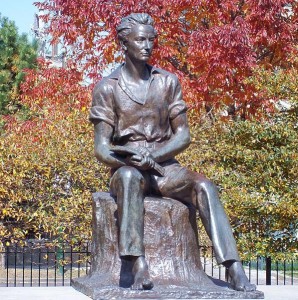 In spite of his very limited access to books, Abe’s thirst for learning compelled him to mature into a respectable young man. Although there was a time when he was challenged to a wrestling match by “The Clary’s Grove Boys”, he managed to win their trust by the end of the day. Being honest and true to himself and others easily made him win the hearts of many.
In spite of his very limited access to books, Abe’s thirst for learning compelled him to mature into a respectable young man. Although there was a time when he was challenged to a wrestling match by “The Clary’s Grove Boys”, he managed to win their trust by the end of the day. Being honest and true to himself and others easily made him win the hearts of many.
Prior to entering into his political career, he served as a captain during the Black Hawk War. It was after his gamble with the world of business that Black Hawk, chief of the mistreated and maltreated Sac Indians, stirred a war between their local governments.
Abraham Lincoln had his fair share in terms of family life. On November 4, 1842, at age 33, he married Marry Todd Lincoln. They were blessed with four sons, Robert Todd Lincoln, Edward Baker Lincoln, William Wallace Lincoln and Thomas Lincoln. Unfortunately, only their eldest son, Robert, lived past the age of 18. His brothers all died because of health problems; Edward of tuberculosis, William of fever, and Thomas of heart failure.
These unfortunate events caused Lincoln to suffer from clinical depression.
Political Career
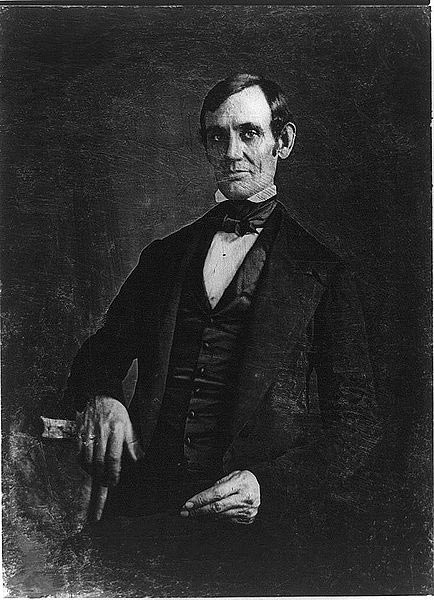 Shifting from one job after another exposed the young Abraham to many types of people. But with his easygoing personality and charisma, he came into close friendships with most of them. It was said that his obvious inclination to politics and strong sense of leadership made everyone expect him to run for office. And he did in 1832, at the young age of 23.
Shifting from one job after another exposed the young Abraham to many types of people. But with his easygoing personality and charisma, he came into close friendships with most of them. It was said that his obvious inclination to politics and strong sense of leadership made everyone expect him to run for office. And he did in 1832, at the young age of 23.
With his knack for crafting informative and attractive oratorical pieces, people would actually take a moment to listen to him. According to some of the folks in the locality, he would be seen joining groups, effortlessly mingling with them and eventually winning their votes by showing them what he can do for them in terms of physical strength and mental ability.
But with devoting only ten days to campaigning, he did not win his first attempt at politics. This was due to the fact that there were areas where he was still a stranger to. Perhaps, if they had known the capabilities of Honest Abe, they probably would have rooted for him to be in office, too; like how almost everyone from a precinct where he was known trusted him with their votes.
Abraham clearly wanted change. Regardless of losing his first political experience, he still ran for office two years after, in 1834. This time, he ran for legislature and had more time for campaign. Through his diligence, the results turned out to be in his favor. He won without much of a surprise, considering his great skill in public speaking and a captivating personality that could easily win any crowd.
Following his first win as a legislature, Abe showed his desire to help people by announcing re-elections after another wherein he served in office for eight years. The highlight of his legislative career would be his opposition to pro-slavery movements made by a majority of the legislating body.
Even if protesting against the slavery movements set by the body would be considered political suicide, he firmly stood on his ground and openly expressed his objection towards the subject. The act of braveness he demonstrated gave courage to those who also believed that slavery is wrong; he gave them the strength and confidence to fight with him in this cause.
Knowing what he can do at a bigger scope, he then decided to run for Congress in 1842. Unfortunately, like his first attempt at politics, he lost to his friend but opponent to the seat, Colonel Baker. But, also like before, he never gave up on his dream of obtaining a seat in Congress. Four years later in 1846, he renewed his candidacy. This time, votes were already in favor of him.
Starting from the early part of his political career, Lincoln finally had settled into a profession that included law and politics, believing that both law and politics must work hand-in-hand in order to produce powerful results. Most of his knowledge in law was self-taught by reading books and pondering on its policies for years. In 1837, he was admitted into the bar. After, he practiced his profession more as a lawyer more than as a politician.
On Slavery and Presidency
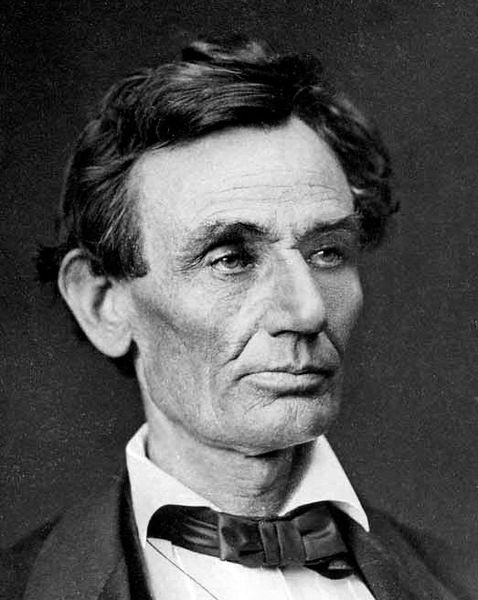 For years, Lincoln gave his services to the people in his locale as a lawyer. He was famous for winning and defending cases which almost seemed impossible. But his years as a lawyer came to a pause when he went back to politics to oppose the pro-slavery Kansas-Nebraska Act of 1854.
For years, Lincoln gave his services to the people in his locale as a lawyer. He was famous for winning and defending cases which almost seemed impossible. But his years as a lawyer came to a pause when he went back to politics to oppose the pro-slavery Kansas-Nebraska Act of 1854.
Coming from the slave state of Kentucky and seeing slavery firsthand from his trips down the Mississippi River, he strongly deemed the total abolishment of slavery. This stand of his was the reason he ran for Senate, and eventually for Presidency. In fact, this act of activism against the pro-slavery movement paved the way for the birth of the Republican Party, which he ran for Senate under in 1858. Unfortunately, he lost to his biggest rival, Stephen A. Douglas.
But he was never new to losing in the game of politics, and it never stopped him from trying again. He came back to the scene in 1860, this time to run for Presidency under the same party. Winning the 1860 presidential elections made him the first Republican President in the history of the United States of America. However, his election to presidency led some of the southern states, where slavery was legal, to creating the Confederate States of America while selecting Jefferson Davis to be their provisional president.
The Confederate States of America
Like most leaders, he had detractors. The creation of the Confederate States of America, although refused to be recognized by President Buchanan, Lincoln’s predecessor, and by President-elect Lincoln himself, made an impact in his presidency. It marked the beginning of the American Civil War, as secessionists saw Lincoln’s execution of the requests for provisions as an act of war.
With minimal military experience, Lincoln was still able to lead the Union through learning about war strategies from books and was able to appoint competent generals to lead the army based from their credentials and past victories.
The Emancipation Proclamation
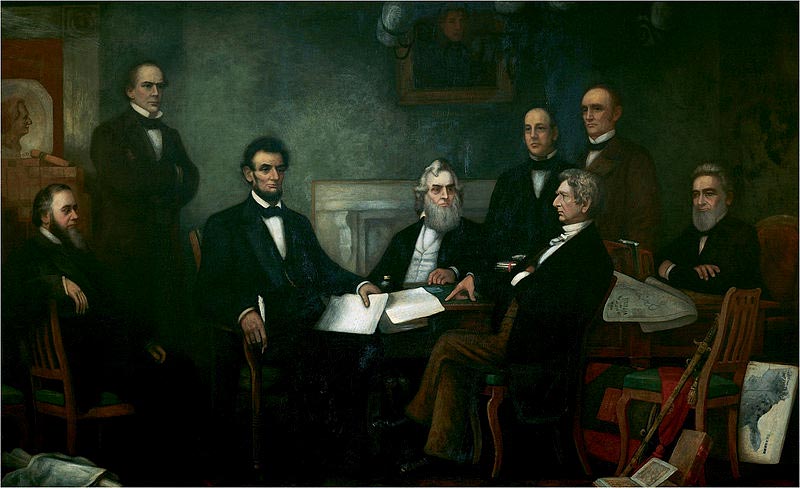 When Lincoln realized that the war would take longer than expected, he issued the Emancipation Proclamation. On September 22, 1862 and January 1, 1863, Lincoln published his initial and final Emancipation Proclamations respectively. This gave freedom to majority of the slaves under his war powers. With the issuance of the Emancipation, the Union became more inspired to fight for its cause to completely abolishing slavery.
When Lincoln realized that the war would take longer than expected, he issued the Emancipation Proclamation. On September 22, 1862 and January 1, 1863, Lincoln published his initial and final Emancipation Proclamations respectively. This gave freedom to majority of the slaves under his war powers. With the issuance of the Emancipation, the Union became more inspired to fight for its cause to completely abolishing slavery.
Knowing that they had the Union to protect them, African American slaves also tried their best to escape the clutches of the Confederacy. Those who successfully fled to the Union camp were given food, shelter and were taught to read and write, much to the Confederate’s frustration. The Confederate Army, in exchange, would enslave the black Union soldiers and were shot at the infamous Fort Pillow Massacre.
The 4-year war came into a decline as Robert E. Lee, commander of the confederate army, surrendered his troops on April 9, 1865 in favor of the Union. However, the celebration didn’t last for long.
On April 11, Lincoln gave a speech showing aversion for racism, therefore giving equal rights to everyone, black or white. John Wilkes Booth, said to be in affiliation with the Confederacy, was there during his speech and did not like it. He originally planned on abducting the president in exchange of the release of confederate prisoners. However, after listening to his speech, Booth was determined to assassinate the president instead.
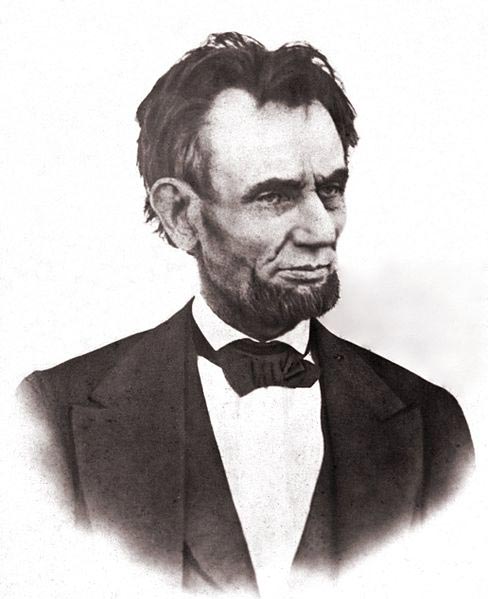 His plan came into realization when, on April 14, 1865, five days after the Confederate Army’s surrender, Booth shot President Abraham Lincoln at the Ford’s Theater in Washington, D.C. Lincoln went to the theater to watch a play entitled, “Our American Cousin” with his wife and friends. Booth’s access to the state box in the balcony was due to the fact that he was a well-known actor, and the theater staff gave him access, thinking that he had good intentions.
His plan came into realization when, on April 14, 1865, five days after the Confederate Army’s surrender, Booth shot President Abraham Lincoln at the Ford’s Theater in Washington, D.C. Lincoln went to the theater to watch a play entitled, “Our American Cousin” with his wife and friends. Booth’s access to the state box in the balcony was due to the fact that he was a well-known actor, and the theater staff gave him access, thinking that he had good intentions.
Even after his death, the Union still fought for the freedom of the slaves. Lincoln’s Emancipation Proclamation was one of the factors for the Senate to vote for the passage of the Thirteenth Amendment to the United States Constitution, which was adopted on December 6, 1985. It provided the complete abolishment of slavery in the country.
Abraham Lincoln is an inspiration to all of us. He taught us how diligence and courage can take you to places; that honesty will always free you from ill conscience; and that fighting for what you believe in will always be worth it, as long as you know that what you are fighting for is right and will be beneficial to majority of the populace; and that we are all created equally, black or white.